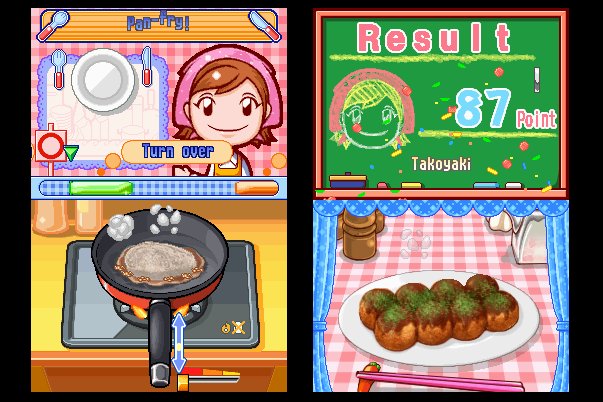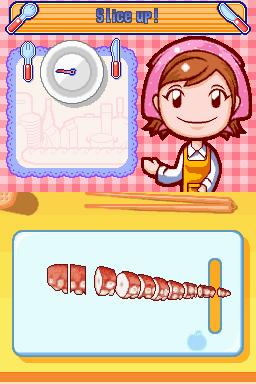GamesRadar+ Verdict
Pros
- +
Making Mama happy
- +
Combining dishes
- +
Seeing the fruits of your labor
Cons
- -
Can only take so much
- -
Lots of repeating steps
- -
Can't eat pretend
- -
digital food
Why you can trust GamesRadar+
It's tough to hate on Cooking Mama. The cheery graphics and so-simple minigames make it ideal for casual gamers or anyone looking to kill a few minutes on a bus, but hang around long enough and the charm starts to wear thin. There may be more than 70 dishes to create, but after 15 minutes of cutting, stirring and blowing into the DS's microphone, we don't care how delicious octopus spaghetti might be.
The entire game revolves around preparing dishes. You start simple, with things like rice, then work up to elaborate combinations of meat, seasoning and anything else you want to toss on there. Preparation might be tapping the knife to cut a carrot, tracing arrows to mash bread around or obeying a series of rhythm-game-like commands to stew a pot of ingredients. Each step of creation is its own timed minigame, eventually giving you the finished product at the end.

Weekly digests, tales from the communities you love, and more
More info
| Genre | Family |
| Description | An adorable collection of cooking minigames that's fun enough in small doses. |
| Franchise name | Cooking Mama |
| UK franchise name | Cooking Mama |
| Platform | "DS" |
| US censor rating | "Everyone" |
| UK censor rating | "" |
| Release date | 1 January 1970 (US), 1 January 1970 (UK) |
A fomer Executive Editor at GamesRadar, Brett also contributed content to many other Future gaming publications including Nintendo Power, PC Gamer and Official Xbox Magazine. Brett has worked at Capcom in several senior roles, is an experienced podcaster, and now works as a Senior Manager of Content Communications at PlayStation SIE.




